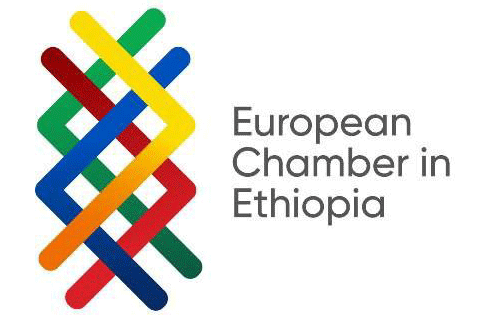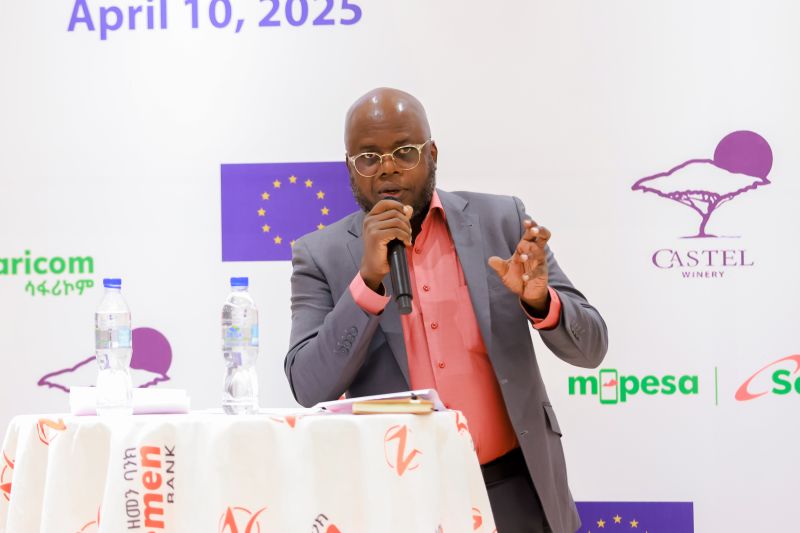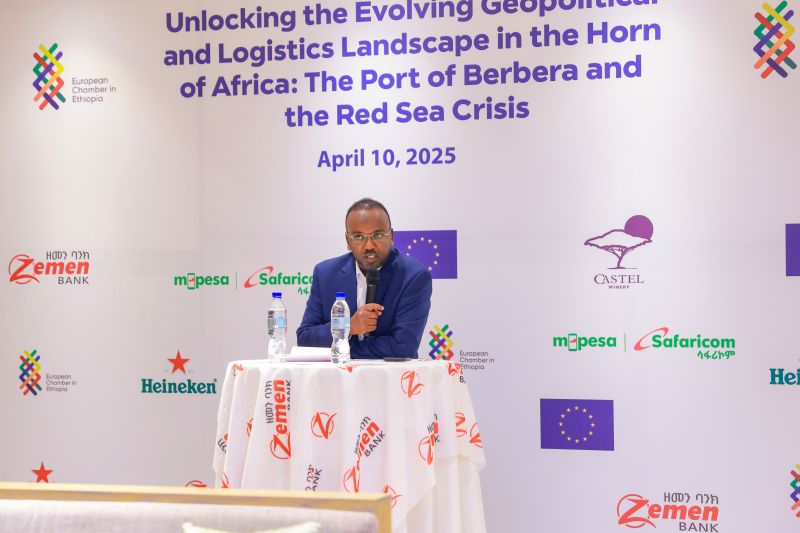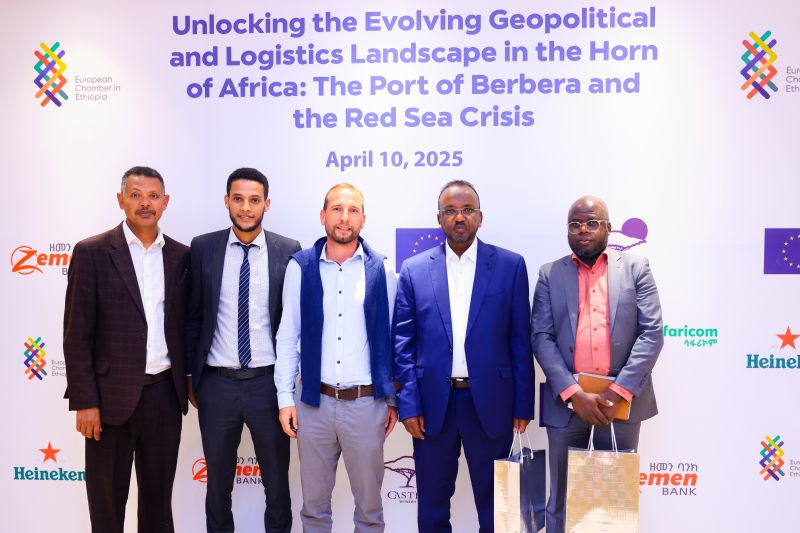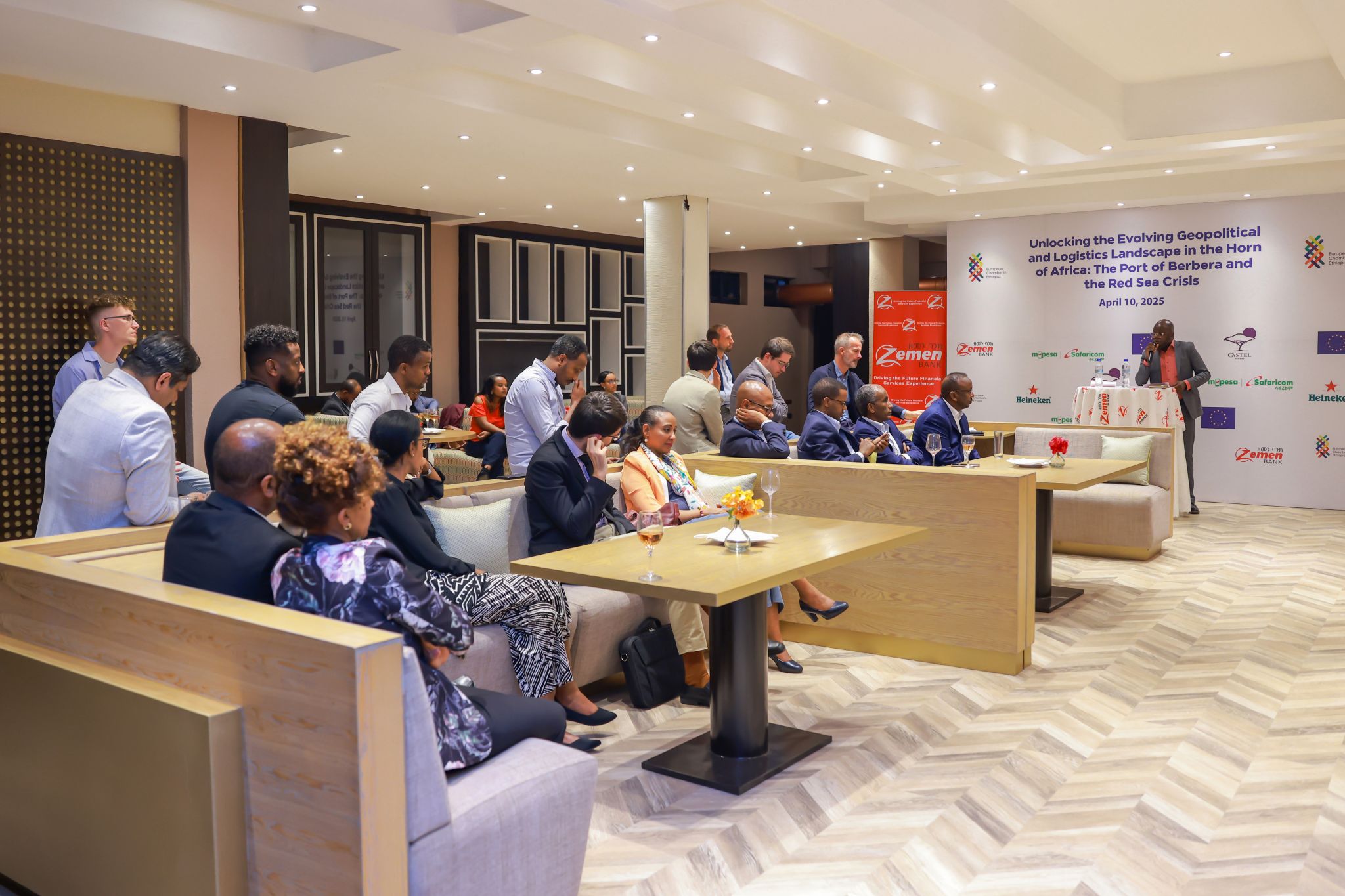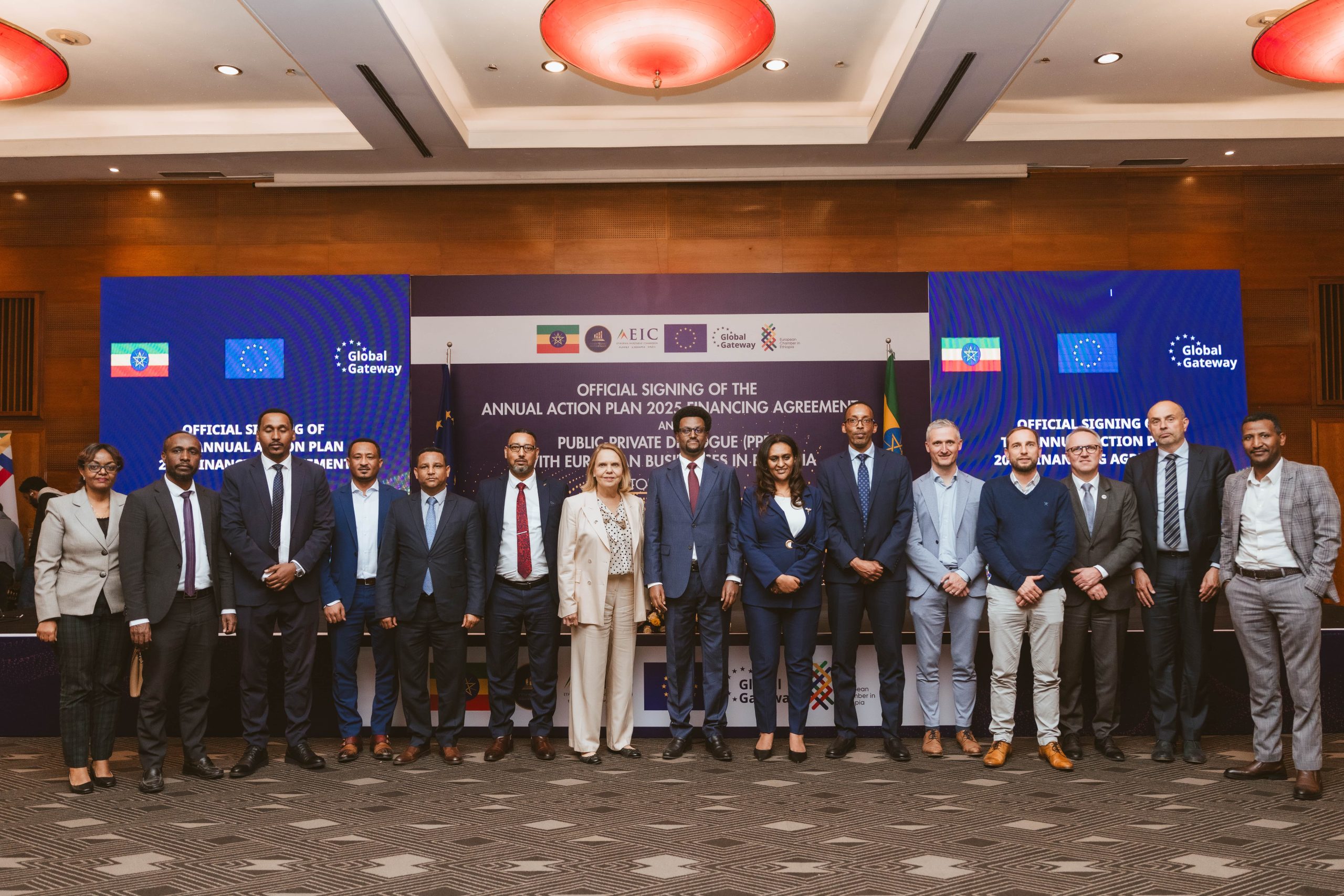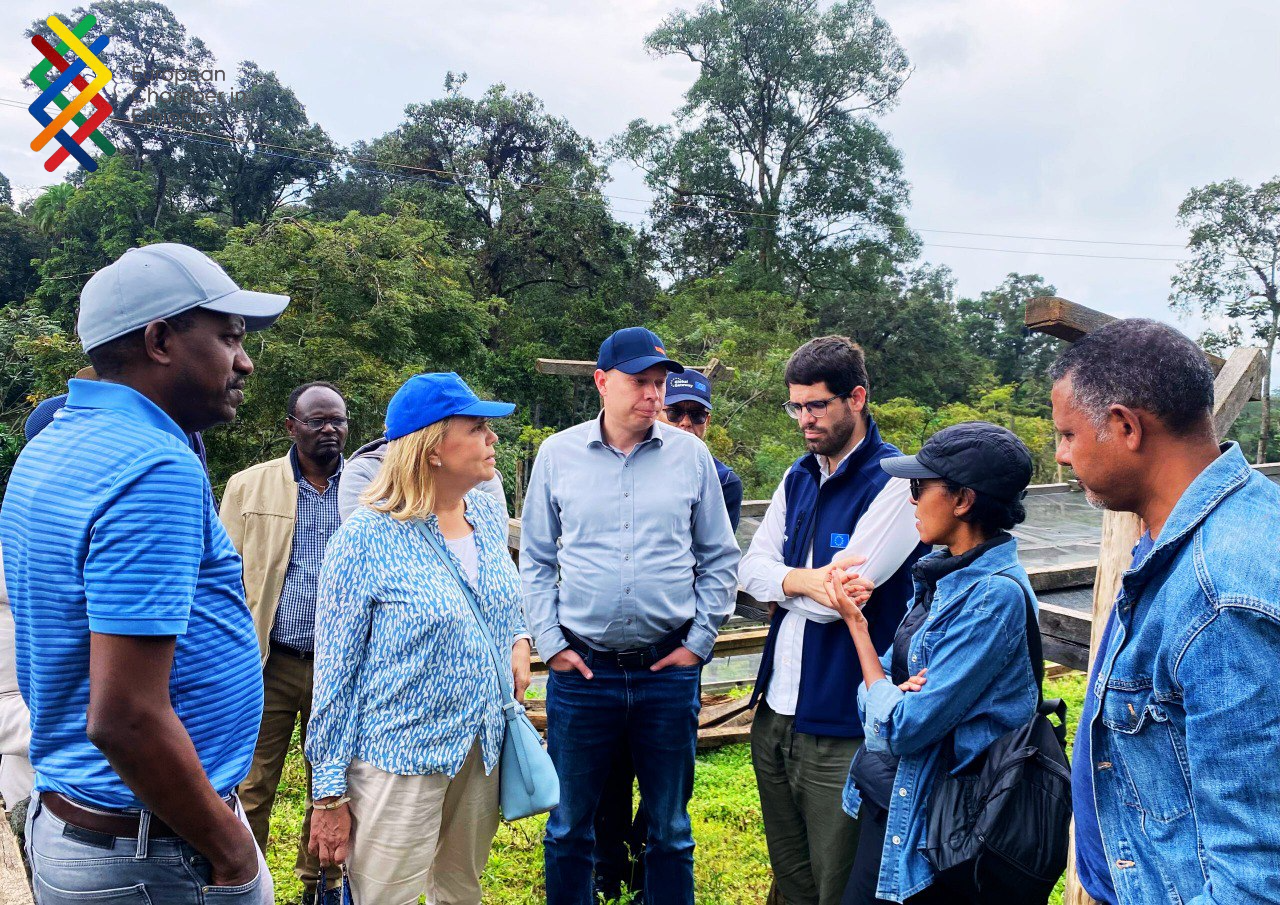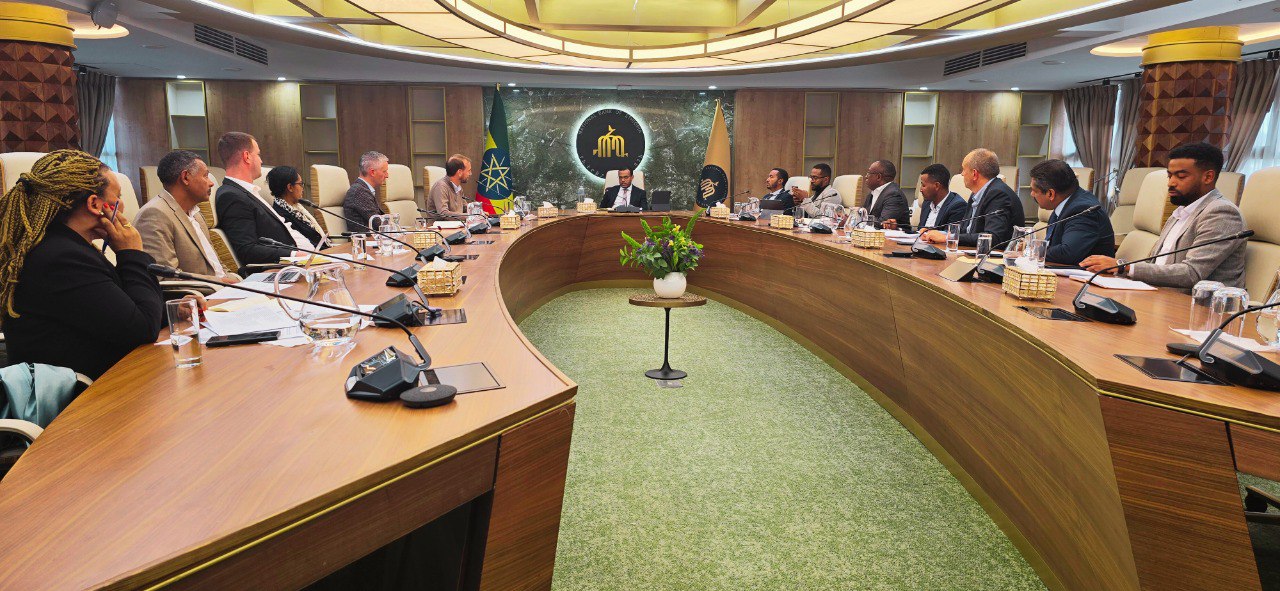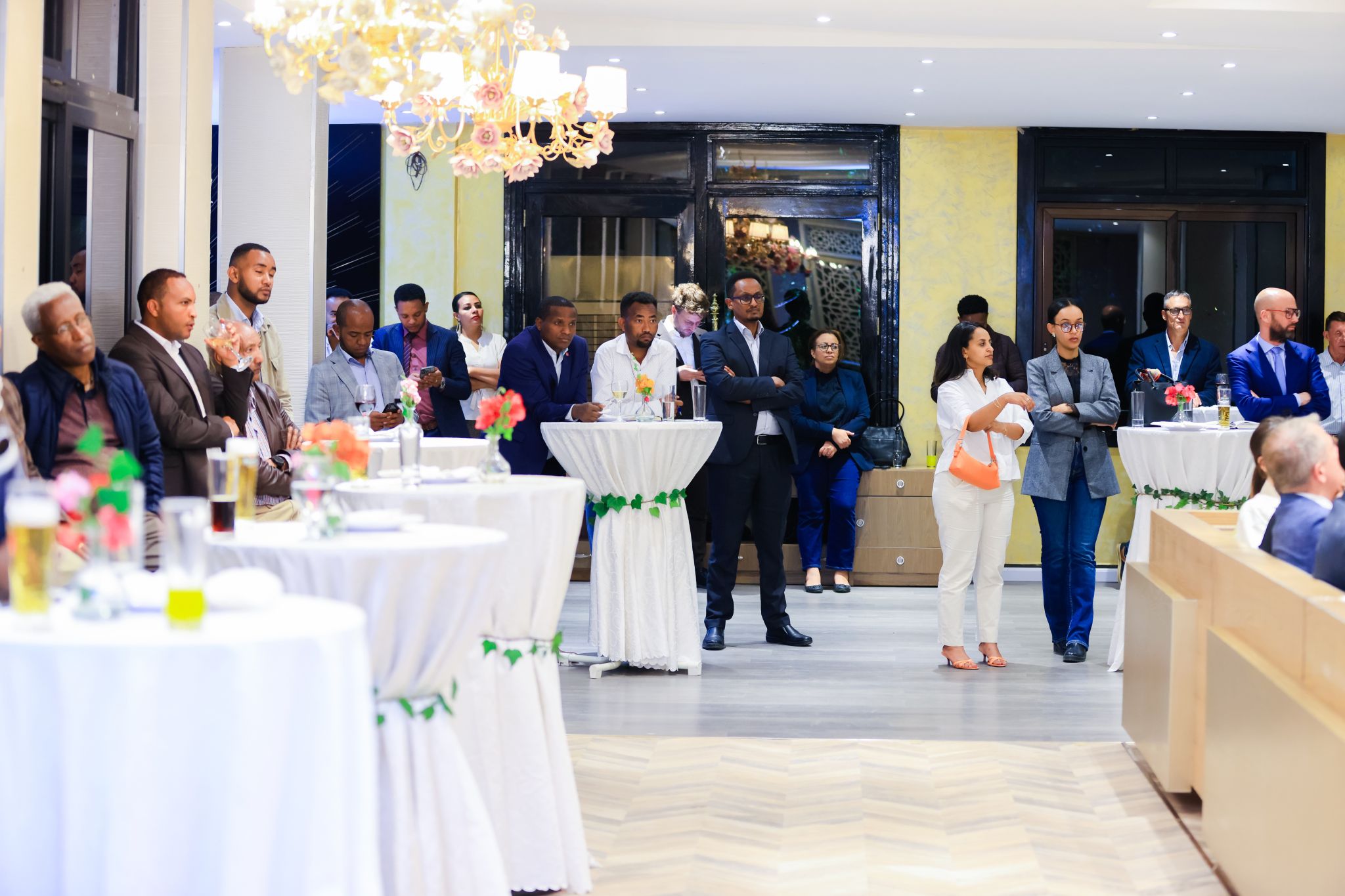
The Evolving Geopolitical and Logistics Landscape in the Horn of Africa: The Port of Berbera and the Red Sea Crisis
The European Chamber in Ethiopia hosted a discussion on the Ethiopia-Somaliland MoU, the strategic role of Berbera Port, and the shifting geopolitical dynamics of the Horn of Africa and Red Sea Corridor.
At its CEO networking event on April 10, 2025, the European Chamber in Ethiopia hosted a discussion on the evolving geopolitical situation in the Horn of Africa, particularly the port of Berbera and the Red Sea crisis. Moses Chrispus Okello, Senior Researcher at the Institute for Security Studies, and Farhan Adem Haibe, General Manager of Alfa Enterprises and former Civil Aviation Minister of Somaliland, discussed the implications of the Ethiopia-Somaliland Memorandum of Understanding (MoU), the evolving dynamics around the Port of Berbera, and the broader geopolitical situation across the Horn of Africa and the Red Sea Corridor.
The backdrop of the discussion is a region in flux. “The peace and security landscape of the region is shifting, driven by a number of factors, including technological advancements, demographic shifts, economic stress, and climatic disruptions,” said Okello. He explained that these forces have placed states under tremendous pressure, manifesting in increasingly transactional state behavior and opening the door for external actors, including private enterprises, criminal networks, superpowers, and middle powers.
Okello situated the Ethiopia-Somaliland MoU as a key catalyst in this complex environment. “The signing of the MoU between Ethiopia and Somaliland accelerated those shifts,” he said. “New alliances started forming, transnational criminal networks across the Red Sea became more prominent and regional frameworks for stability began to transform into sources of instability.”
Referencing historical parallels in Bolivia, the former Czechoslovakia, and even the Uganda-Kenya port access dispute, Okello emphasized that the agreement between Ethiopia and Somaliland is not unprecedented. The agreement’s significance rather lies in the context of Ethiopia’s pursuit of sea access via Somaliland, a breakaway region not recognized by the African Union or the United Nations, which raised sensitive questions of sovereignty, legitimacy, and regional order.
In the aftermath of the MoU signing with Somaliland, tensions escalated between Ethiopia and Somalia, prompting mediation efforts that culminated in the Ankara Declaration, brokered with Turkish support. “Somalia would allow Ethiopia’s peacekeeping troops that were in Somalia to stay, and in return Ethiopia would recognize Somalia’s sovereignty,” explained Okello. Yet this recalibration, while diplomatically useful, left Somaliland in a precarious position. “The Ankara Declaration left Somaliland in a bit of a pickle,” he noted, casting doubt on the durability of Ethiopia’s commitments under the MoU.
Zooming in from a business and local governance perspective, Farhan Adem Haibe, a business personality and former Civil Aviation Minister from Somaliland, offered a comprehensive view of Somaliland’s current status and aspirations. “Somaliland is a de facto sovereign state with a Democratically elected Government, security forces, passport and own currency,” Haibe said. “Despite lacking international recognition, it’s very stable, well-functioning, and one of the most resilient and promising economies in the region.”
Haibe outlined Somaliland’s assets with commercial precision. Sitting on 850 km of Red Sea coastline, Somaliland’s port of Berbera that is modernized and expanded by DP World with over half a billion dollars, offers a direct corridor to Ethiopia. “At the heart of this opportunity is the Port of Berbera, with brand new road infrastructure which connects Berbera to Ethiopia, a nation demanding a port and access to the sea,” he said.
Somaliland’s economy, he added, is not solely defined by logistics. The territory exports over thousands of heads of livestock annually, contributes substantially to regional food supply chains, and is diversifying into mining and tourism, among others.
Both speakers underscored the volatility of the Red Sea shipping crisis, caused by the Houthi disruptions along the Yemeni coast. “There are attempts to solve that issue,” Haibe said, “but American bombing in Yemen has exacerbated the situation. This will affect the quality, the price, and availability of goods entering Africa.”
This instability is fuelling what Okello described “a mosaic of proxy conflicts,” involving Egypt, Eritrea, Iran and Somalia, with implications stretching beyond the Red Sea into Sudan and inland East Africa.
The port race is further inflamed by regional competition. Djibouti, long Ethiopia’s maritime lifeline, views Berbera as a rising challenger. Meanwhile, Somalia has explored alternative port offerings to Ethiopia and the USA, including Hobyo and Kismayo.
Underlying the discussions was a pivotal concern about whether Ethiopia, Africa’s second-most populous nation, can sustainably grow without direct sea access. “Is it possible for a large country like Ethiopia to leapfrog its economy without access to a naval base in the fashion that is being demanded?” asked Okello. Participants noted that it is a historical injustice for Ethiopia, a country of over 120 million people to remain landlocked without direct access to a port.
Responding from his vantage point, Haibe said, “Ethiopia is a very huge country that requires access to more than one port, not just Djibouti and not only Berbera.” The MoU, he suggested, still holds promise if politics can align with economics. He mentioned a recent visit by a mayoral delegation from Somaliland to Addis Ababa as a glimmer of hope. “There are ongoing discussions on promoting the Berbera Corridor, facilitating security and safety of the goods entering Ethiopia,” he said. While the physical infrastructure of Berbera Port and the road connection are already in place, more preparations will be needed to get the Berbera Corridor operational and smoothly functioning. During the session, it was also stressed that accessing an additional port alone will not resolve the logistical challenges and inflated logistics costs that Ethiopia currently faces. It will be crucial for the customs systems of both countries to be seamlessly aligned and address customs, communication and operational barriers.
Among the questions raised by participants was how a potential recognition of Somaliland by former U.S. President Donald Trump might impact the region, and whether Ethiopia would be likely to follow suit. Participants also asked how such recognition could shift the political and economic dynamics, what measures are being taken to make the Berbera port more seamless for Ethiopian exports, and what it would take to establish a fully operational trade corridor between Berbera and Addis Ababa.
As the region approaches the June 2025 deadline linked to the Ankara Declaration negotiations, the path ahead seems unpredictable. The speakers agreed that although the geopolitical landscape appears different depending on one’s vantage point, it is evident that the Horn of Africa is undergoing a historic geopolitical shift.
latest News
EU and EuroCham Sign Grant to Boost Ethiopia’s FDI competitiveness
November 22, 2025
EuroCham Networking Event Discusses New Income Tax Law
October 22, 2025
EuroCham Urges Reconsideration of EUDR Timeline
September 29, 2025
EuroCham Conducted Technical Discussions with Outgoing NBE Governor
September 17, 2025
